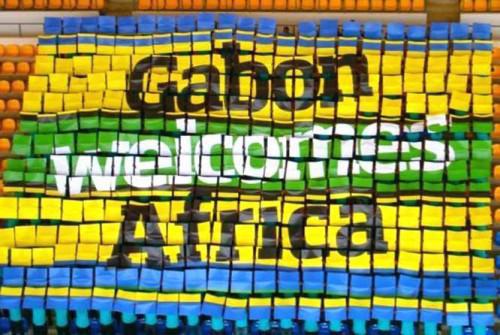By Samindra Kunti
January 13 – Hosts Gabon and debutants Guinea-Bissau will kick off the 31st edition of the Africa Cup of Nations this weekend, the biennial men’s football championship organised by the Confederation of African Football (CAF).
At Friday’s opening press conference CAF’s general secretary Hicham El Amrani said that there are no plans to expand Africa’s flagship tournament. Earlier this week FIFA, led by president Gianni Infantino, controversially expanded the World Cup to 48 teams from 2026 onwards and with UEFA’s EURO 2016 having been extended to 24 participants, there was speculation CAF may follow suit and increase the number of nations at the finals tournament from the current 16-team format.
El Amrani said that won’t happen and also confirmed that the opinion within CAF was that the two-year cycle of tournaments remains the best for the development of the African game.
CAF president Issa Hayatou was absent from the press conference. African’s football strongman will be challenged by Ahmad Ahmad, the head of Madagascar’s FA and a member of the CAF Executive Committee, in the presidential elections in March. Hayatou has been in charge of African football since 1998 and is seeking an eighth term.
On the field, the hosts will begin proceedings against Guinea-Bissau. They will seek to better their quarter-finals achievement of 2012 when Gabon co-hosted the tournament with Equatorial Guinea. This time Gabon will be lead by Dortmund star striker Pierre-Emerick Aubameyang. He will be burdened with leading the hosts out of a relatively straightforward group, including Burkina Faso and Cameroon.
The Indomitable Lions have been one of the participants hardest hit by the ever-strident club versus country incidents ahead of the African Cup of Nations. Joel Matip of Liverpool was one of seven Cameroonian players who told coach Hugo Broos they were not interested in being selected for the tournament.
“These players have put personal interest above those of the national team and the federation reserves the right to take action against the players in accordance with FIFA regulations,” said Broos in a statement, but, ultimately, Broos relented and Cameroon will begin their campaign with a weakened squad.
The tournament will have 368 players, who ply their trade in 68 countries, including Canada, the Middle East and Vietnam. Clubs in England and France have lost 89 players to the three-week event.
Riyad Mahrez, named African Footballer of the Year last week, and his Algerian compatriot Islam Slimani may be absent for weeks from club football with English champions Leicester City as the duo will represent Algeria in group B, the tournament’s group of death, with Senegal, Tunisia and Zimbabwe.
Senegal are Africa’s top-ranked team and had a 100% record in the qualifiers, but the Lions of Teranga have consistently underperformed at the finals tournament. Zimbabwe return to the African Cup of Nations for a third time, after a decade’s absence. In the build-up they were hit by financial problems as the cash-strapped Zimbabwean FA, (ZIFA), struggled to agree terms with its players over daily allowances and matches bonuses. The players wanted an appearance fee of $5 000 per player for each match at the tournament, and $400 in foreign daily allowances, according to local media. All seems to have been resolved, at least for the moment.
In group C, favorites Ivory Coast had financial problems of their own, but the government of Ivorian president Alassane Ouattara stepped in with a budget of €6 million for the team’s campaign. The defending champions have been paired with Togo, DR Congo and Morocco. They kick off their tournament against Togo on January 16 in Oyem. The Elephants are once more among the top nations and are fancied to retain their title. In the final of the 2015 African Cup of Nations Ivory Coast defeated Ghana on penalties.
In group D, seven-times African champions Egypt return to the tournament, after missing the last three finals. They face Ghana, Mali and Uganda. The Ghanians had a tumultuous run-up to the event, with constant speculation about the potential dismissal of Avram Grant. The former Chelsea coach is hugely unpopular in Ghana.
Uganda last appeared in the finals in 1978, when they finished runners-up. The Cranes were hit by a lack of funding, but still prepared in earnest for the tournament with training camps in Tunisia and Dubai.
Whoever wins the latest installment of the African Cup of Nations will bag $4 million in prize money, which is a 64% increase from a previous $1.5 million. The tournament will culminate with the final on February 4. The winners will qualify for the 2017 FIFA Confederations Cup in Russia.
Contact the writer of this story at moc.l1714113113labto1714113113ofdlr1714113113owedi1714113113sni@i1714113113tnuk.1714113113rdnim1714113113as1714113113

